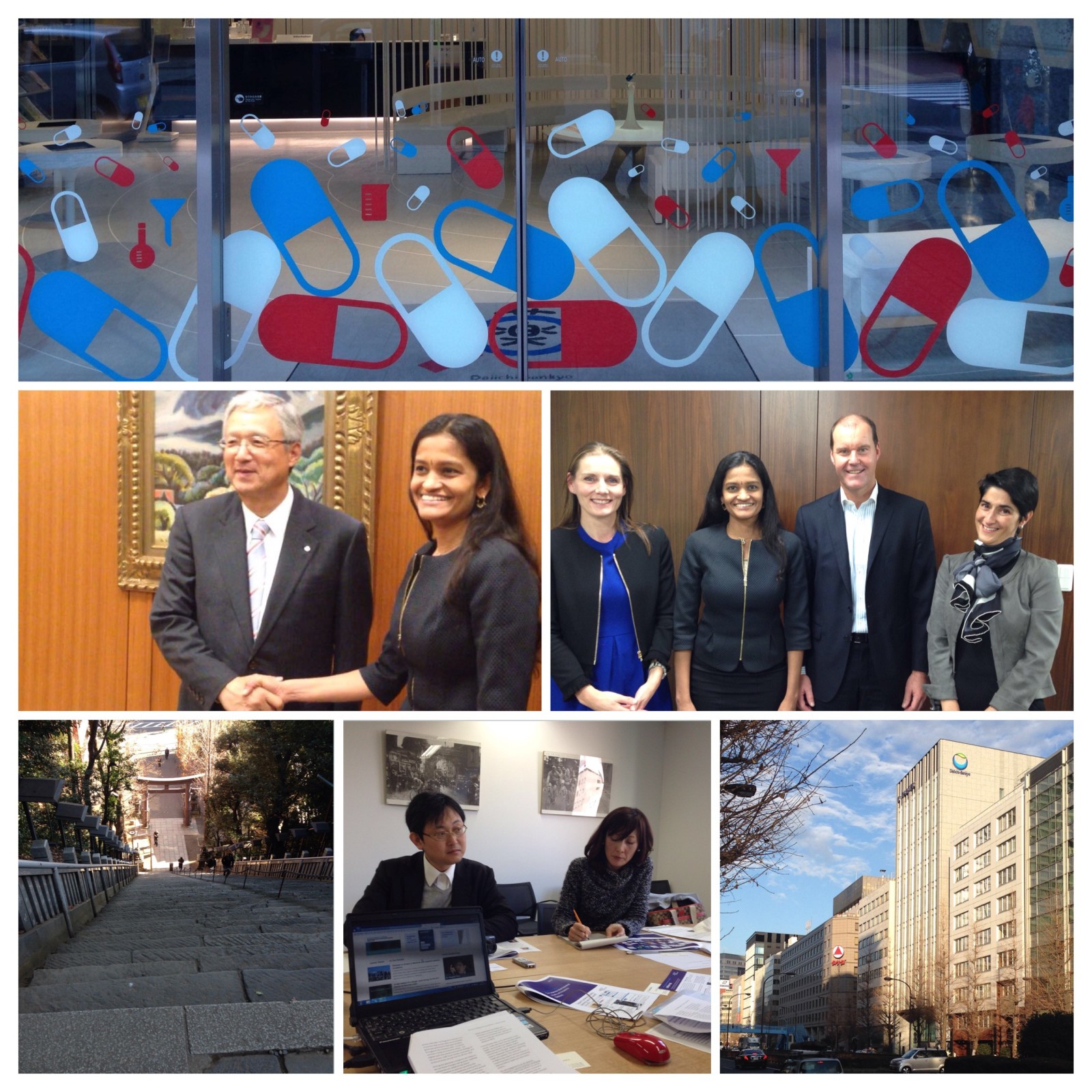Dialogue on Access to Medicine with Japanese pharma companies
The aim of the trip is to engage in strategic discussions on the roles of the pharmaceutical industry and other stakeholders in this space, and identify opportunities to support the global health agenda. “Following other meetings with pharmaceutical companies measured in the Access to Medicine Index, we have seen how these discussions lead to a deeper understanding of our shared goals and an acceleration of companies’ access approaches in developing markets. We have also seen the opening of stronger communication channels between companies and other stakeholders,” says Jayasree K. Iyer, Executive Director of the Access to Medicine Foundation.

The week will start with an access to medicine meeting involving a range of interested stakeholders, hosted by the Japan Pharmaceutical Manufacturers Association (JPMA). Jayasree K. Iyer, Executive Director, and Suzanne Wolf, Director of Communications, will also meet with the leadership from the four Japan-based companies measured in the Access to Medicine Index – Astellas, Daiichi Sankyo, Eisai and Takeda – as well as with investors and government officials from several ministries with responsibility for global health issues.
Health is a cross-border, global challenge
Japan is a world leader in innovation and high-quality biomedical research. As pharmaceutical markets in developed countries are slowing, and markets in emerging economies – including those that are home to the poorest in the world – are growing, all pharmaceutical companies, including the Japanese, have increasingly been looking outwards to the commercial opportunities these countries present. At the Foundation, we have learned that humanitarian efforts in these countries go hand-in-hand with long-term economic sustainability for companies. Governments also have a central role to play in supporting global health needs. Prime Minister Shinzo Abe, published in the Lancet on December 12 2015, has clearly stated Japan’s determination to playing its part to secure the health of the world: “I reiterate that health issues are not purely the domestic concerns of individual countries. Health is a cross-border, global challenge.”
Japan’s pharmaceutical companies, supported by the Japanese government, have already demonstrated their willingness and their expertise to support global health needs. The recent creation of the Global Health Innovative Technology Fund (GHIT), where pharmaceutical companies and the Japanese government invest to drive the Japanese research community towards developing solutions for neglected diseases, is a prime example of this commitment. There is now a unique opportunity to expand these efforts and make important gains in improving access to medicine globally. Today’s investment in creating relationships with stakeholders in developing countries, building infrastructure and health system capacity, and considering the supply and affordability of innovative products are essential activities in maximising the opportunities of tomorrow’s markets. “The time is right to work together with Japanese stakeholders to scale up access-to-medicine commitments, and together engage even more closely with the needs of the poorest in the world,” says Jayasree Iyer.
Note: For this strategic engagement trip Jayasree K. Iyer and Danny Edwards prepared a special commentary on the increasing orientation of Japan towards global health issues, and the growing contribution of the Japanese pharmaceutical industry towards achieving access to medicine goals here.